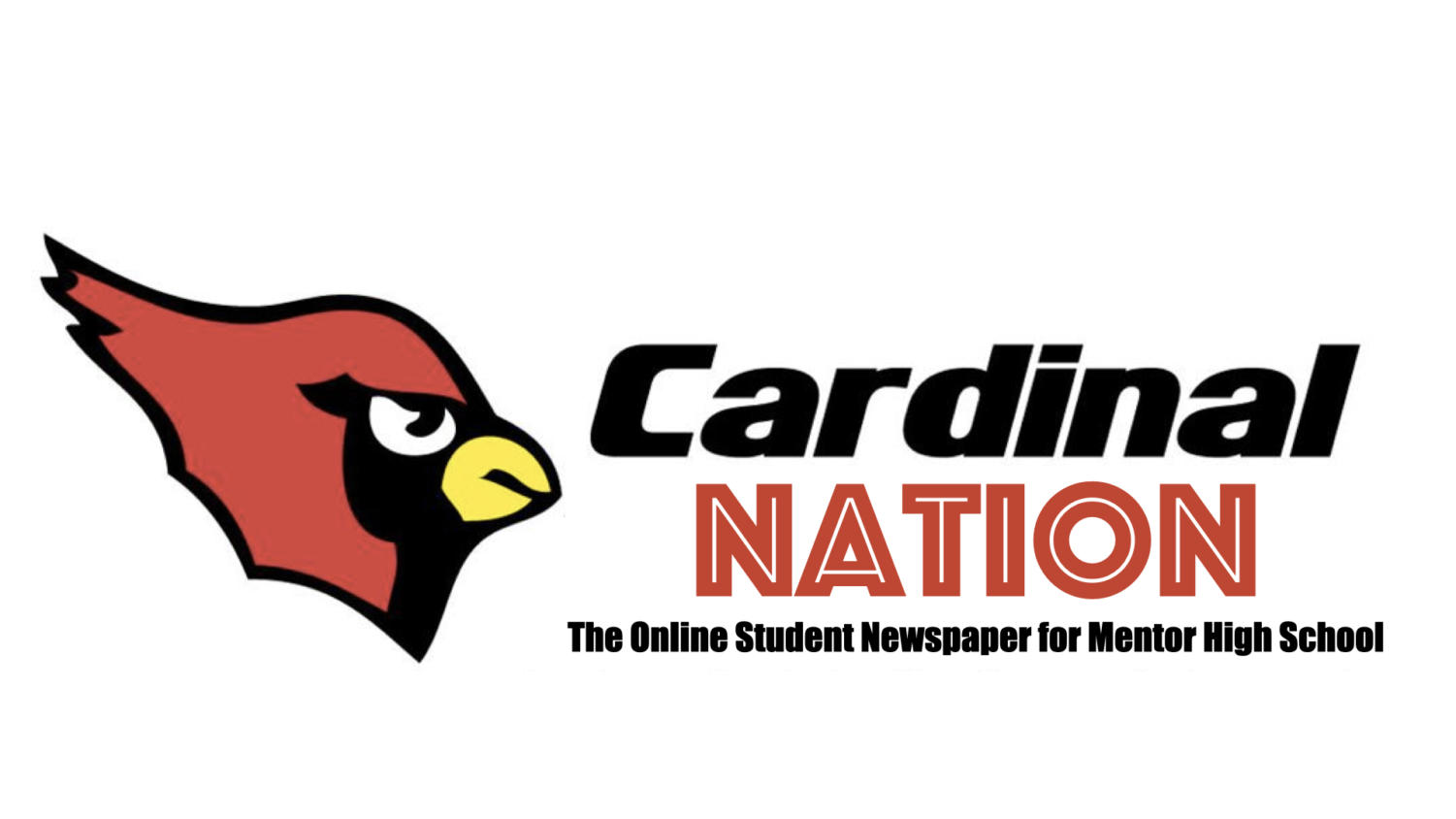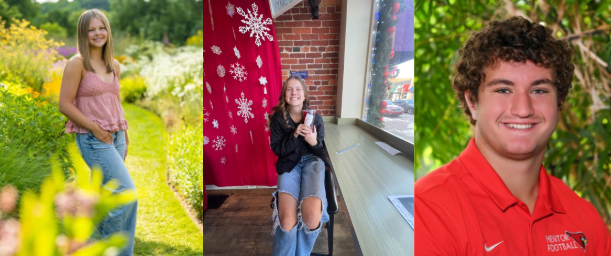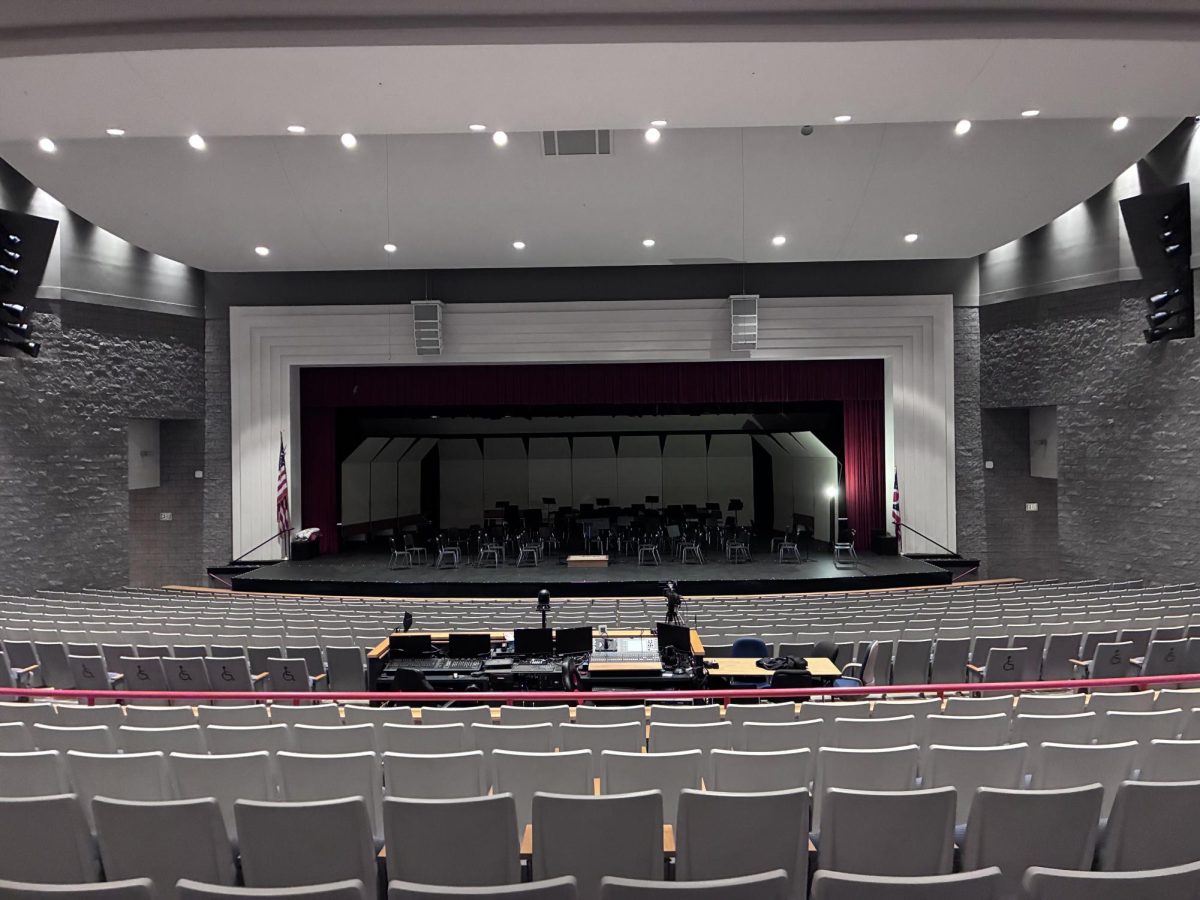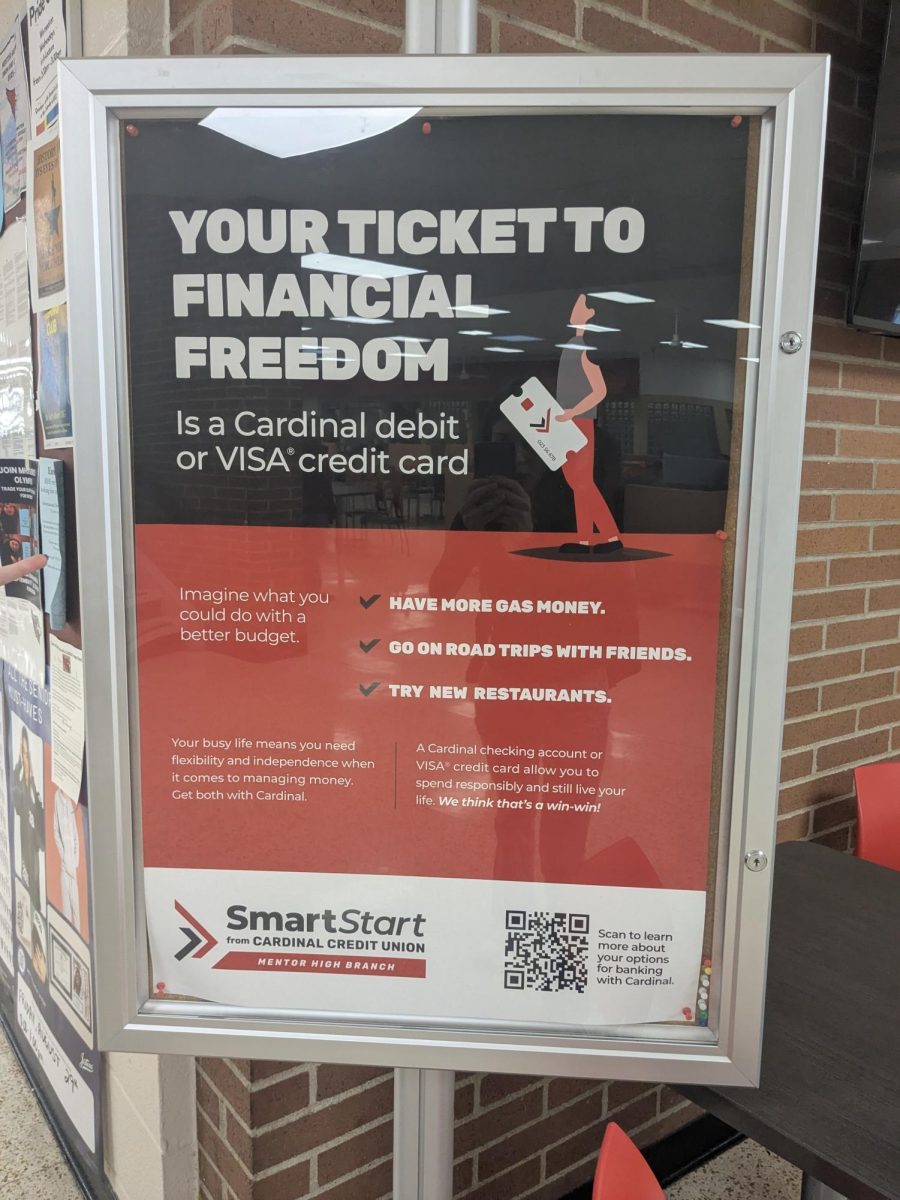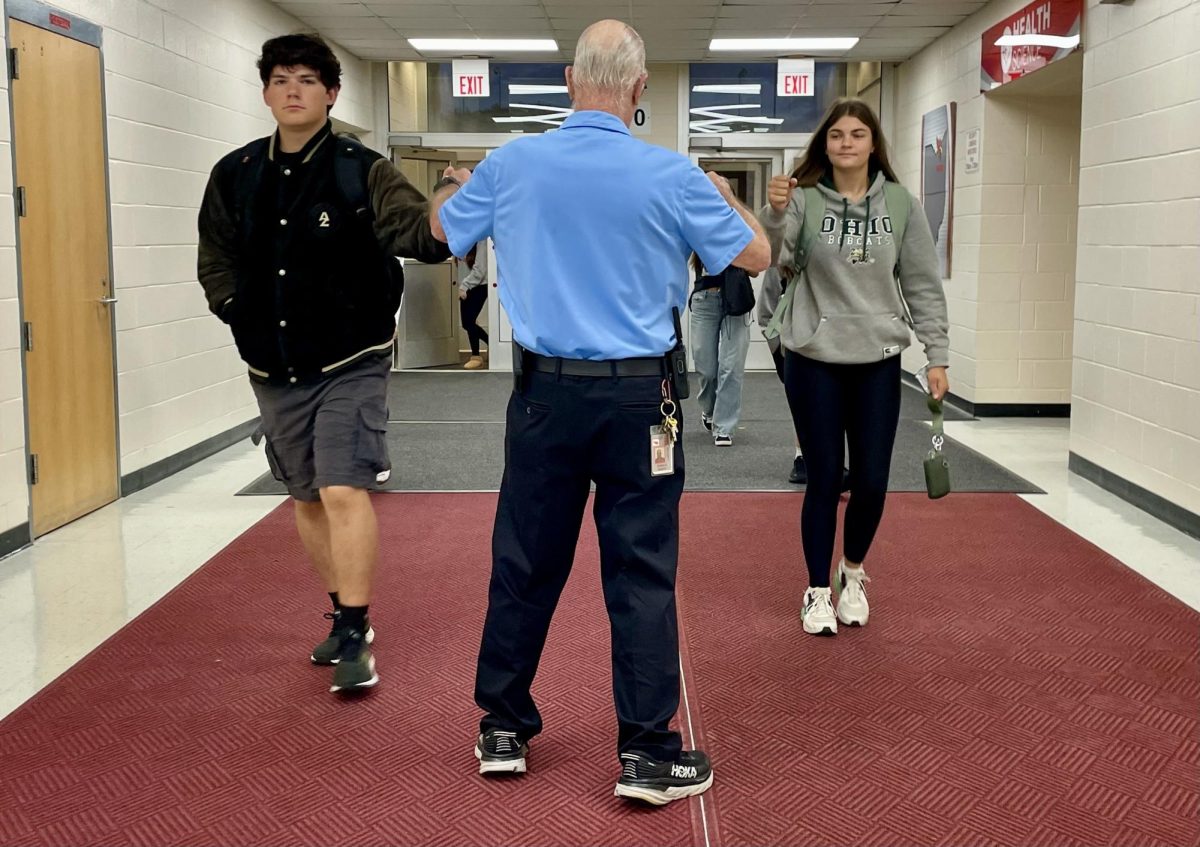On Friday, September 5, Kelly McBride, a journalist and the vice president of The Poynter Institute, spoke to the new journalism class at Mentor High School about ethics, interviewing, and pitching story ideas—all to help develop her audience of budding reporters.
McBride earned her bachelor’s degree in journalism from the University of Missouri and her master’s in religion from Gonzaga University. She worked at The Spokesman-Review in Spokane, WA, for over 14 years as a police and religion reporter.
For the past 23 years she has been working at the Poynter Institute, serving for the last six years as the senior vice president and chair of the Craig Newmark Center for Ethics and Leadership at the institute. In this position, she guides professional news organizations in the best practices for serving citizens, building trust, and elevating democracy. She also serves as NPR’s Public Editor where she and her staff listen to audience feedback and hold NPR accountable to their mission to serve the American public.
One of the main goals of The Poynter Institute is the conservation of ethics in journalism, so this was one of the main topics of McBride’s presentation to students. Her chief words of advice were to maintain their journalistic integrity by double checking and verifying their facts. She reminded students that doing so helps keep journalists objective and stops the spread of misinformation. She also advised students to take responsibility for their work. If they make mistakes, they must rectify their errors as soon as possible and print retractions that are clear and prominent.
McBride also gave the class advice about interviewing sources. She recommended students record their interviews, reminding them that when they choose to incorporate quotations into their stories, they must be sure they are quoting people verbatim, and a recording ensures accuracy. Building on her interviewing advice, McBride instructed students to ask open-ended questions, claiming them to be the best because they invite sources to give detailed, well-thought-out answers instead of one-word responses. She said an easy way to ensure questions are open-ended is to begin them with “why” and “how.”
At the end of the presentation held on Google Meet, McBride answered questions from students who wanted to know why she pursued a career in journalism and who her favorite journalists were. She answered all their questions and then began questioning the students, wanting to know what story ideas they had. She then offered personalized advice for how to research and approach their story ideas.
